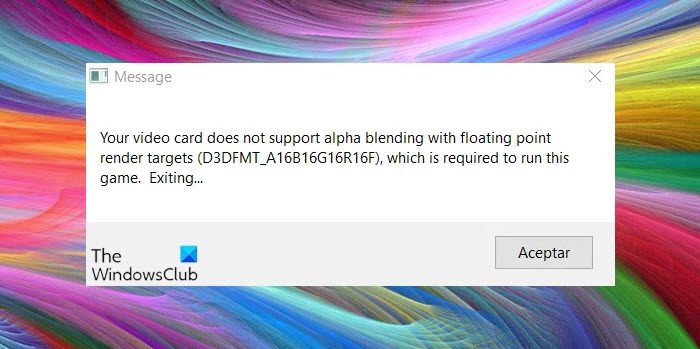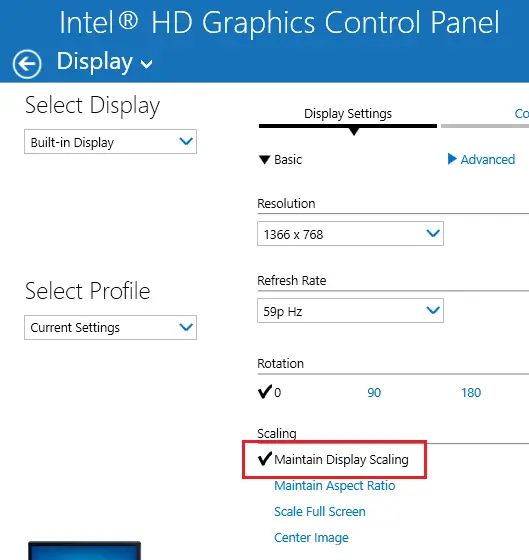Ideally, a pixel (picture element) on a screen is a combination of 3 colors (Red, Green, Blue). Almost any opaque color could be made out of this combination, however, many games and advanced photo editing tools use transparent and translucent colors. The color components comprise what we call an alpha bitmap and the process of mixing and making these colors is called alpha blending. The transparency component is called the alpha channel.
At times while trying to play games that require alpha blending, users might get the following error message:
Your video card does not support alpha blending

While the statement blames the video card for not supporting the feature, it is mostly an issue with the graphics drivers since most brands have updated their drivers to support alpha blending. However, your system might not have the drivers installed right or perhaps they might not be updated.
Apart from RGB opaque colors, gaming uses transparent and semi-transparent colors, which need alpha-blending.
Try the following solutions step by step to rectify the issue:
1] Update the graphics drivers
Without changing the video card, many manufacturers have added the functionality for alpha-blending. Here is a guide to help with updating graphics drivers for Windows.
In case this does not work, we could install the latest drivers from the manufacturer’s website.
It is also suggested to roll back the graphics drivers if things do not work right.
2] Enabling GPU/Display scaling
GPU scaling is a feature with the newer graphics cards which help the image output of any game or application fit the screen. This feature could be activated from the graphics driver’s setting page and the procedure is different for different drivers.
1] Right-click on any empty space on the desktop screen of your computer and check for the graphic card properties in the list. It might be named differently for different drivers.
2] After opening the graphics card’s setting, please open the display tab or display setting and enable GPU scaling or display scaling. Again, it would be different for different drivers but understandable.
3] Select default Graphics card
For those who use a dedicated graphics card on their system while having the integrated card present already, a conflict might occur as the system keeps interchanging between the cards depending on the application.
To resolve this conflict, you could select a card for graphics permanently.
1] Right-click in any empty space on the desktop screen and then click to open the Graphics properties.
2] Go to the 3D properties (it might be an icon or a tab) and select any one of the graphics cards as default. It is recommended to use to the dedicated card for its higher configuration here but the choice is yours.
Hope this works for you!